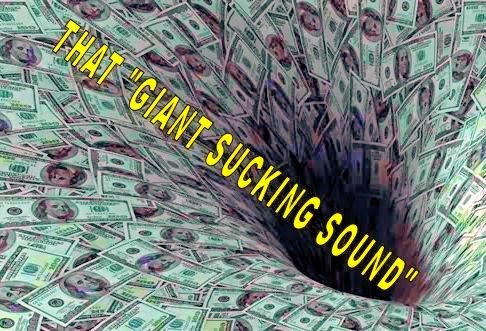OCTOBER 20 2016
We've allowed gambling to become part of everyday life. It's been a massive mistake
Vyom Sharma
If you were unaware that we are in the middle of Responsible Gambling Awareness Week, do take a moment to absorb the irony.
Arguably this is great timing. After all, what better moment to begin the battle against gambling addiction than the most gambling-heavy period of the calendar year?
And yet, amid the spring racing season, is there any other time of year when the message is more prone to be flushed away by the torrent of advertising that commands people to do the precise opposite – to gamble, and gamble hard?
Clearly the command is effective. Australia is the gambling capital of the world. This isn't one of those dubious awards like "State's Cleanest City" or "Horsham's Best Pie", it's actually backed up by numbers – at well over $1000 per adult annually, Australians lose more money on gambling per capita than any nation. That's right, it's us on top – not Americans with easy access to Vegas, or the Chinese with the haven of Macau. The nation of two-up and $2 scratchies comes up trumps.
There is nothing, in and of itself, wrong with this. We have a right to spend our money as we wish. And indeed, 80 per cent of us, the highest proportion of any country in the world, wish to wager it. This isn't necessarily a problem.
Or rather, it's never been a problem for me, until I've had to sign some death certificates.
I've written a few such certificates, with the cause of death recorded as pneumonia, cirrhosis or suicide. But a lot of times I wonder if I should write about what caused these terminal maladies in the first place. Yes, the liver failure was due to alcohol, and the alcohol abuse started with the depression. But what caused the depression?
Sometimes the cause is a gambling addiction. I say sometimes, rather than quote hard figures, because it's difficult to statistically quantify indirect causes of death. Often the circumstances leading to the deaths appear as messy as a collapsed house of cards; it can be hard to know which card toppled first.
But at the very least we know this: according to the Productivity Commission's inquiry report on gambling, there are up to 60 suicides a year due to gambling addiction. Let's be honest, 60 dead people isn't much – not enough to care about. This isn't my personal opinion, it's the grey calculus of public outrage.
When tragedies seem self-inflicted, 60 deaths just becomes a number. Deaths matter more if there is a clear victim and perpetrator. Good versus evil is a plot we can all get behind.
Consider every time we in Australia hear about a mass shooting in the United States. Recall for a moment all the pearl clutching, hash-tagging and prayers it inspires here, all the way across the Pacific. But what horrifies us particularly is how damn often these shootings seem to occur.
Yet let's review the numbers. In 2015, there were 475 deaths from mass shootings in America, a country of 340 million. Proportionally, there are nearly twice as many deaths each year in Australia due to gambling addiction-related suicide. That's not even accounting for the non-suicide gambling-related deaths.
The despair we feel for mass shootings on the other side of the globe is genuine. But in a way our understanding of these all too frequent horrors has transcended the victim versus villain paradigm. We have begun to see these events as tragic specifically because we feel they are preventable. They feel preventable because of a sensibility towards guns that we in this nation have cultivated over time and have now imbibed – that they should be controlled. We wince and shake our heads at the abject absurdity of the American gun lobby's refusal to curtail an activity, however recreational, in the interest of saving lives.
Now consider the view of Tim Costello, who is among other things spokesman of the Alliance for Gambling Reform: that the gaming lobby in Australia is akin to the National Rifle Association.
If that crude comparison invokes a reflexive protest within you, fair enough. Pokie machines are not exactly guns. But I would wager that that protest is also, in some way, an emotional defence of an activity we regard as culturally normal.
This is at the heart of our refusal to admit, let alone engage with, one of our nation's biggest issues. We don't believe we are obsessed with gambling because we have done something far more dangerous with it … we have normalised it. We have normalised it far beyond what is normal for any other country on the planet. In other nations, gaming machines are kept only in hotels, casinos and gaming centres. Here they are found in pubs and bistros, and often deliberately placed in our poorest areas.
The past few years have seen an unprecedented rise in media advertising for sports gambling. Betting odds are displayed during games and on ad-breaks between goals for children to see.
Is it responsible to expose children to this while we cannot ensure they are being involved in a mature discussion on the broader issues of gambling?
This week everything ought to be questioned. We have a gambling problem; the numbers don't lie. But we refuse to believe them. Ironically, our misjudgment of numbers is what the gambling industry relies on.
Vyom Sharma is a Melbourne GP.
For help or information call Gambler's Help on 1800 858 858 or Lifeline on 131 114.






